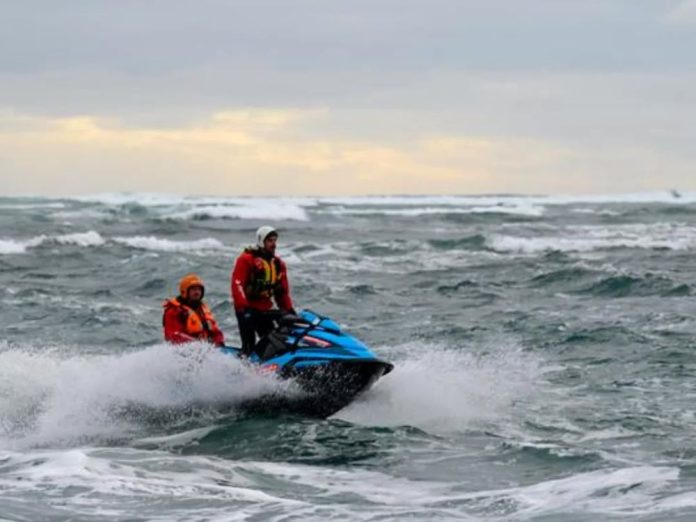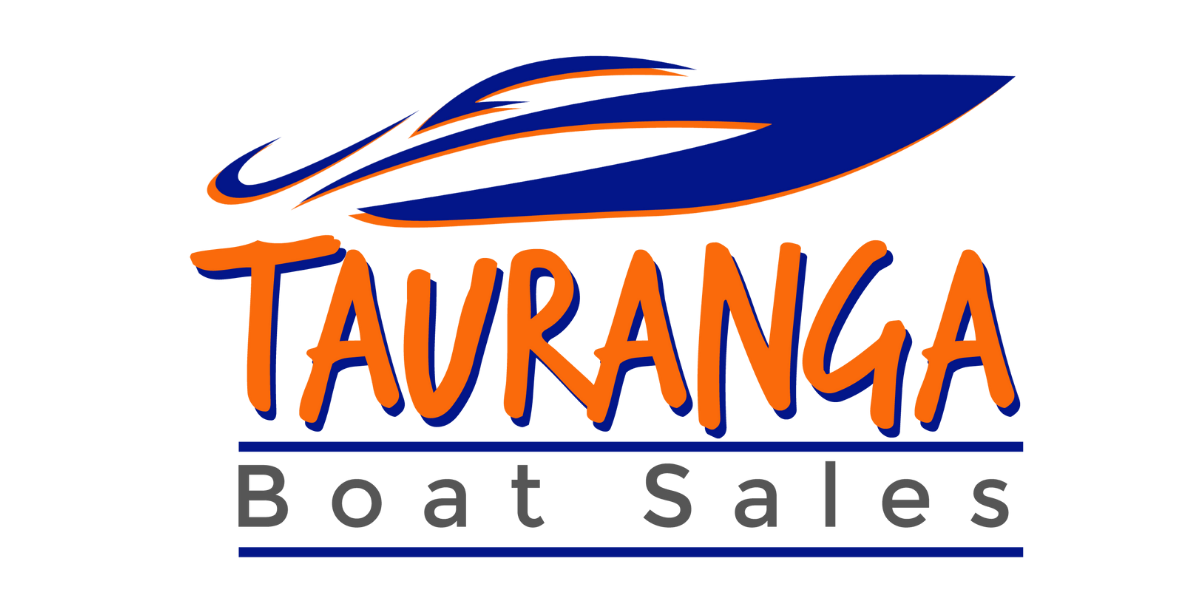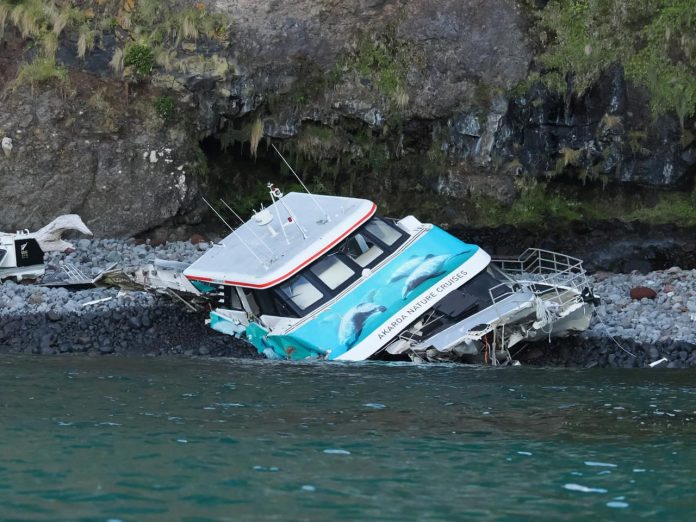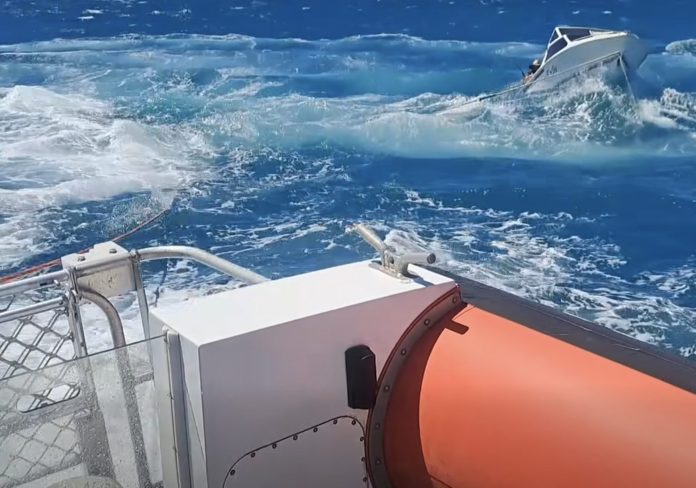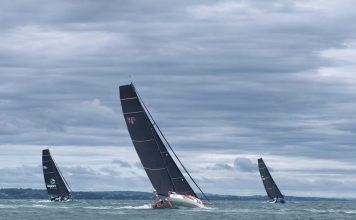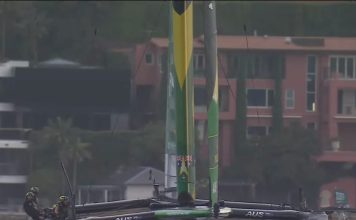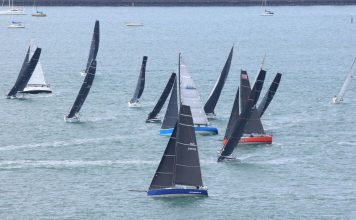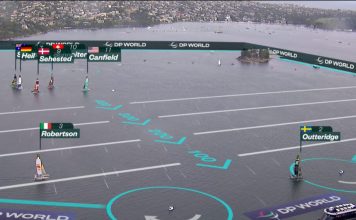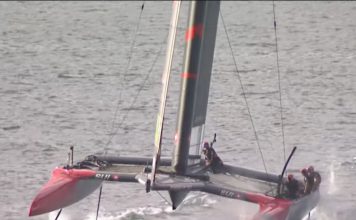Four people were rescued yesterday after their vessel capsized while crossing the Raglan Bar — a timely reminder of both the power of the sea and the importance of preparation.
At 10:12am, Raglan Volunteer Coastguard were tasked to reports of a capsized vessel near the notorious Raglan Bar. Within minutes, crews aboard Rylock Waikato Ski Rescue 1 and Rylock Waikato Ski Rescue 2 — Yamaha VX 1800 Waverunners operating within a 2NM range from shore and used for rapid response, scene assessment, and initial treatment — were on the move. They were quickly joined by Gallagher Rescue, an 11-metre Scott Robson–designed aluminium catamaran built by West Coast Boats Ltd, powered by twin 500hp Yanmar diesel engines (748kW) driving 292 Hamilton waterjets, with a range of 229NM at a fuel burn of 80L per hour at 25 knots (maximum speed 42 knots).
These vessels aren’t easily come by for the Raglan Volunteer Coastguard — they’re the result of years of dedicated fundraising and the generous support of sponsors such as Gallagher Engineering and Rylock Waikato. It’s true grassroots effort like this that strengthens our coastal communities and helps make boating in New Zealand a much safer pastime.
Several nearby boaties assisted by pointing rescuers toward the vessel’s last known position. Working through the surf zone on the north spit, Rylock Waikato 2 began a coordinated search alongside a Raglan Surf Lifesaving IRB. The second Coastguard vessel, Rylock Waikato 1, soon located the upturned boat and all four people further north toward Mussel Rock.
Two of the casualties were taken ashore by surf lifeguards while the others were retrieved by Coastguard crews. Onshore volunteers and Surf Lifesaving personnel provided first aid before all four were assessed by Hato Hone St John paramedics at the Coastguard base. Two people were reported to be in moderate condition and two in minor condition.
The rescue highlights a textbook example of preparedness at sea. The group had logged their bar crossing, worn lifejackets, and activated their personal locator beacon (PLB) — all actions that made a swift recovery possible.
Even when all the right precautions are taken, things can still go wrong — but in this case, those safety measures undoubtedly saved lives, leading to an excellent outcome by the rescue teams.
Raglan Volunteer Coastguard: “The ocean does not allow second chances”
Raglan Coastguard extended thanks to the local boating community for their quick response and communication during the incident. Their efforts, combined with the professionalism of Surf Lifesaving and St John, ensured a successful outcome.
As Raglan Volunteer Coastguard noted in their statement, “It’s great to see the boating community looking out for one another and putting safety first.”
Their volunteers remain ready 24 hours a day, 365 days a year — a reassuring presence for anyone navigating the challenging waters of the Waikato coast.
Support Raglan Volunteer Coastguard
Raglan’s current rescue vessel has served the community well for 25 years, but it’s time for an upgrade to ensure faster response times and enhanced safety for crews and those they save. The unit has already raised $600,000 toward its $2 million goal to launch a new vessel equipped with modern technology and improved efficiency. Every donation, large or small, helps make Raglan’s waters safer.
Donate or learn more: raglancoastguard.org.nz/donate








